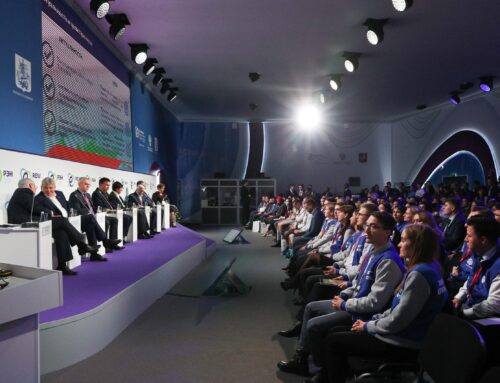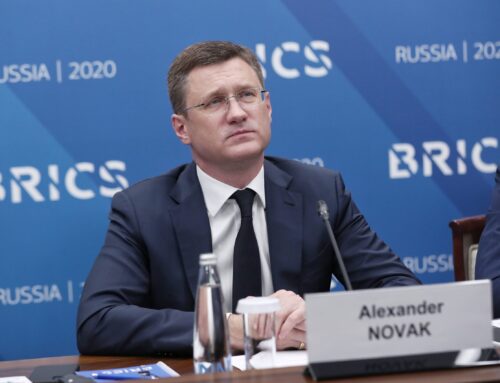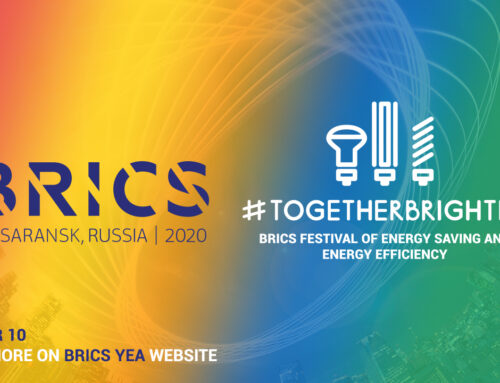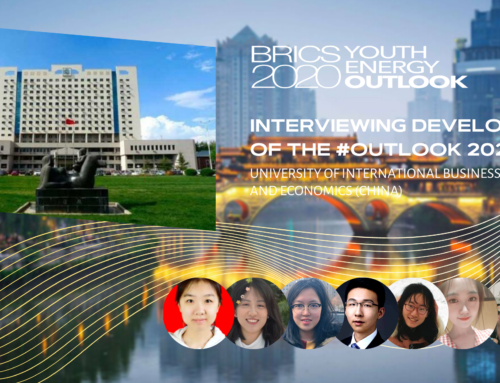Today we would like to introduce to you the team participating in development of the BRICS Youth Energy Outlook 2020 from Gubkin Russian State University of Oil and Gas. It is a large group of gifted researchers consisting of students of Gubkin University Grigory Rozhniatovsky, Airat Hakimow, Ivan Vanchugov, Alexander Gumenny, Adel Ishmurzin, Vladislav Barakov, Serafim Nurzhits, Daniil Chapaikin, Viktor Prokofev, Anastasia Zubenko, Maksim Ledyaev, Bogdan Andreyev, Sirakan Bagdasaryan and Victoria Skosareva led by Dauddin Daudi (Head of the Scientific Committee of the Student Scientific Society, Student).
Gubkin University was founded in 1930 by the outstanding scientist, academician Ivan Gubkin. Today it is a powerful national research center and a real source of human resources for the Russian oil and gas industry. According to the proportion of budget income from research, the University is in top rank among the Russian industry universities. Gubkin University actively applies innovative learning methods and the interdisciplinary approach to education, develops infrastructure for training in virtual environment of professional activity based on interactive full-scale simulators, computer models and systems.
Where and how did you meеt?
We are an initiative group of students who met through joint projects at the Student Scientific Society organization at Gubkin University of Oil and Gas.
What are your general interests?
We represent our university – Gubkin Russian State University of Oil and Gas, therefore, we chose the topic “Traditional hydrocarbon energy within the sustainable development.” Thus, we can say that we share common interests due to concern for the Russian energy sector.
What projects have you already realized?
Separately all team members have extensive practical experience in speaking at different conferences. However, considering the projects which were implemented together as a team, we cannot help but mention that our team is simultaneously working on a project by “Nadezhnaya Smena” Foundation on similar topics.
Which rules do you use for distribution of tasks between chambers and for prioritization?
To organize the work, several departments were formed in accordance with the specialties of the team members. Thus, students of the faculty “Development of Oil and Gas Spheres” and “Geology of Oil and Gas” were responsible for promising gas fields; students from the faculty of pipeline transport were responsible for transporting gas and delivering it to gas processing plants, whereas students from the faculty of Chemical Technology and Ecology continued to work and were responsible for the most common gas chemistry products. At the end of the work of each department, we combined all the papers into one and checked its consistency, after which we proceeded to the next task.
In your opinion what’s the main principle that makes your teamwork successful?
In our opinion, the key to success of the work is the responsibility of the people who carry it out. As Winston Churchill once said, “The price of greatness is responsibility.”
What contribution to your team experience do you hope to get during your work on the BRICS YEA Outlook-2020?
Daudi Dauddin, leader of the team: “As the leader of the project from our university, I hope that I have managed to organize the team’s work properly, taught the researchers to work together and showed them that a close-knit team of specialists can do anything”.
How did you know about the BRICS YEA and the BRICS Youth Energy Outlook-2020?
We accidentally learned about this project, because at the same time we were engaged in a similar project from the “Nadezhnaya Smena” Foundation.
In your opinion why is it beneficial for the youth from the BRICS countries to cooperate?
In our opinion, there are several possible approaches in solving any problem, and such cooperation allows us to see many different options for solving energy problems for each country.
How do you evaluate the role of the BRICS YEA in the achieving global sustainable development?
By organizing such events, BRICS YEA allows to raise issues that will be topical in the nearest future. Thus, in our opinion, the Agency makes a great contribution to the sphere of global sustainable development.
In your opinion what challenges the BRICS countries will be facing in the nearest future in the field of energy development? How can the youth face these challenges?
It should be mentioned that hydrocarbon energy sources can be squeezed by renewable energy sources, however, we should not forget about the multitude of factors that are often not considered. Oil and gas are not only used for the production of fuels which tend to be renounced by the majority today. They are also used for manufacturing of the products with high added value, such as ammonia or polymers. Therefore, even if hydrocarbon energy will face a drop in fuel demand in the near future, there will always be demand for oil and gas chemistry products.
In our opinion, the main thing how young people can influence these challenges is to reinforce their knowledge in the field of energy, so that at the right time they are able to occupy leadership positions and be responsible for the development of the energy sector of their country.
Your chosen topic is related to the prospects of traditional hydrocarbon energy. What would you like to place emphasis on during your work?
In our work, we took into account the possible reduction in prices for hydrocarbon fuels. Thus, we placed a greater emphasis on gas processing to produce gas chemistry products that are in greatest demand, namely ammonia, methanol and polymers.
In your opinion how will hydrocarbon resources contribute to sustainable development in the future?
The development of hydrocarbon use technologies allows to reduce the negative impact on nature, involve companies from related industries, as well as improve the quality of life by introducing new valuable gas processing products (olefins, polymeric materials, hydrogen fuel).
We thank the team from Gubkin University for this interview and the willingness to participate in so many projects to promote youth energy cooperation.





